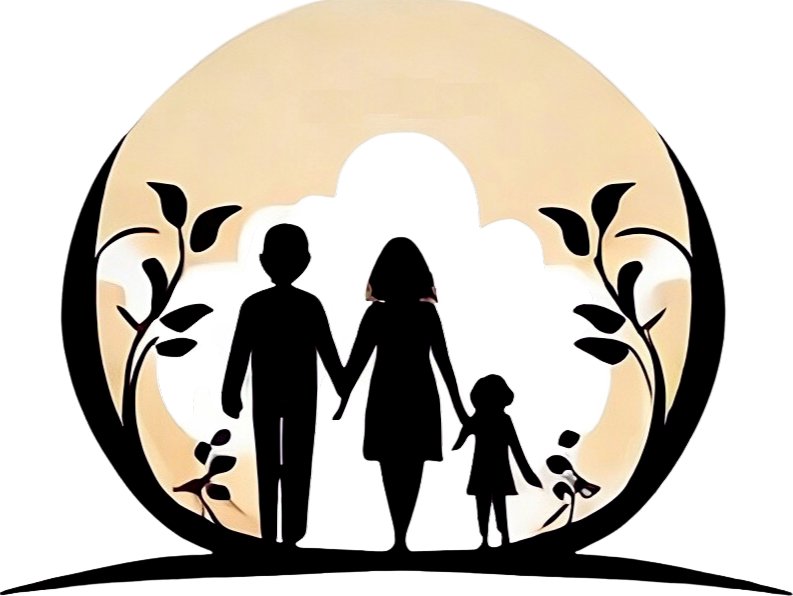- Preserving Memories and Strengthening Bonds: 6 Family Traditions and Their Importance
- Family Traditions and Their Importance
- Preserving Memories: Importance of Family Traditions
- Family Traditions as Cultural Heritage
- Significance of Passing Down Customs
- Preserving Family Identity and Values
- Reinforcing Cultural Roots
- Strengthening Family Bonds through Traditions
- Creating Shared Experiences
- Fostering Communication and Connection
Preserving Memories and Strengthening Bonds: 6 Family Traditions and Their Importance

Family traditions are a vital part of our lives. They bring us together, create lasting memories, and strengthen the bonds between family members. In a rapidly changing world, where everything seems to be evolving at a fast pace, it is crucial to hold on to these traditions to preserve our identity and heritage.
Traditions provide a sense of belonging and continuity. They serve as a reminder of our roots and the values that have been passed down from generation to generation. Whether it’s celebrating holidays, sharing meals, or engaging in specific activities, these rituals connect us to our past and help us create cherished memories for the future.
One such tradition is the annual family reunion. This gathering brings together relatives from near and far, allowing them to reconnect and strengthen their familial ties. Whether it’s a picnic in the park or a large gathering at a designated venue, the family reunion serves as a reminder of the importance of family and unity.
Another important tradition is the passing down of heirlooms and keepsakes. These tangible objects hold sentimental value and tell a story of our family’s history. From old family photographs and letters to treasured jewelry and antique furniture, these heirlooms connect us to our ancestors and give us a sense of pride in our heritage.
Family traditions also provide an opportunity for parents to instill values and teach important life lessons to their children. Whether it’s through storytelling, cooking together, or participating in community service projects, these traditions teach children about empathy, respect, and the significance of family bonds. They create a sense of belonging and security within the family unit.
Moreover, family traditions help us create a sense of identity and belonging. They allow us to celebrate our cultural heritage, customs, and values. Through these traditions, we can pass down our language, traditions, and beliefs to the next generation, ensuring that our cultural heritage does not fade away.
In conclusion, family traditions play a crucial role in our lives. They preserve our memories, strengthen our bonds, and connect us to our roots. By upholding these traditions, we ensure that our family’s legacy lives on and that future generations have a sense of belonging and pride in their heritage.
Family Traditions and Their Importance
Family traditions play a vital role in preserving memories and strengthening bonds within a family. These customs and rituals provide a sense of belonging and identity, creating a unique shared history that is passed down through generations.
One of the main reasons why family traditions are important is that they create lasting memories. Whether it’s an annual holiday gathering, a special mealtime routine, or a weekly game night, these traditions give family members something to look forward to and cherish. They create a sense of anticipation and excitement, and provide opportunities for family members to connect and create meaningful memories together.
Family traditions also serve as a way to strengthen bonds within a family. By participating in these shared activities, family members develop a sense of unity and solidarity. They learn to work together, communicate effectively, and support one another. These traditions can also help foster important values such as respect, empathy, and gratitude.
Moreover, family traditions provide a sense of stability and continuity in an ever-changing world. They offer a sense of comfort and familiarity, especially during difficult times. Knowing that certain traditions will always be there helps provide a sense of security and emotional stability.
Preserving family traditions is also important for preserving cultural and historical heritage. Through these customs, families pass down their values, beliefs, and traditions from one generation to another. They keep alive the stories and experiences of past generations, ensuring that their legacy lives on.
In conclusion, family traditions are not only about creating enjoyable experiences, but they also have a profound impact on the bonds and memories shared among family members. Preserving and continuing these traditions is essential for creating a strong family identity, fostering unity, and preserving cultural heritage.
Preserving Memories: Importance of Family Traditions
Family traditions are more than just routines or rituals that families participate in regularly. They serve a deeper purpose by creating lasting memories and strengthening the bonds between family members. By preserving these traditions, families can pass down their values, beliefs, and unique experiences to future generations.
One of the key benefits of preserving family traditions is the creation of lasting memories. Traditions often involve special activities or events that bring family members together in a meaningful way. These shared experiences create memories that can be cherished and reminisced upon for years to come. Whether it’s a yearly holiday celebration, a summer vacation ritual, or a weekly family game night, these traditions provide opportunities for family members to bond and create lasting memories together.
Preserving family traditions also helps to strengthen the bonds between family members. Engaging in traditions allows family members to spend quality time together and develop a sense of belonging and unity. These shared experiences foster a sense of connection and create a supportive and loving family environment. Family traditions also provide an opportunity for family members of different generations to interact and learn from one another. It allows older family members to pass down their wisdom and knowledge to younger family members, creating a sense of continuity and tradition.
Furthermore, family traditions serve as a way to pass down family values, beliefs, and unique experiences. They provide an avenue for teaching and instilling important values and beliefs in younger family members. For example, a tradition centered around philanthropy and giving back to the community can instill a sense of compassion and empathy in children. Similarly, a tradition that involves cooking and sharing family recipes can help preserve cultural heritage and traditions. By preserving these traditions, families ensure that their values and beliefs are preserved and carried on by future generations.
In conclusion, preserving family traditions is essential for creating lasting memories, strengthening familial bonds, and passing down family values and beliefs. These traditions provide opportunities for families to come together, bond, and create cherished memories. By preserving these traditions, families ensure that their unique experiences and values are carried on by future generations, fostering a sense of unity and continuity within the family.
Family Traditions as Cultural Heritage
Family traditions hold a special place in every culture, as they are a way of preserving the values, customs, and beliefs that have been passed down through generations. These traditions serve as a link to our ancestors and are an important part of our cultural heritage.
Through family traditions, we are able to connect with our roots and understand where we come from. They provide us with a sense of identity and belonging. These traditions are often unique to each family, but they also reflect the broader cultural traditions of a particular community or ethnic group.
By participating in and honoring these traditions, we show respect for our heritage and the customs that have shaped us. They allow us to pass on knowledge and wisdom to future generations, ensuring that our cultural heritage is preserved and celebrated.
Family traditions also play a significant role in strengthening family bonds. They provide regular opportunities for families to come together, share experiences, and create lasting memories. Whether it’s a holiday celebration, a special meal, or a yearly tradition, these shared experiences help to build a sense of unity and connection among family members.
Moreover, family traditions often involve storytelling, where older family members pass down stories and anecdotes to younger generations. This oral tradition not only helps to keep our family history alive, but it also strengthens our emotional bonds and fosters a sense of belonging.
Overall, family traditions hold immense value as a cultural heritage. They allow us to preserve our customs, connect with our past, and foster strong family bonds. By cherishing and upholding these traditions, we ensure that our cultural heritage remains alive and vibrant for generations to come.
Significance of Passing Down Customs
Passing down family customs and traditions from one generation to another plays a crucial role in preserving our cultural heritage and strengthening family bonds. These customs are not merely rituals or activities; they contain the essence of our family history, values, and identity.
By passing down customs, we ensure that our family’s unique traditions and stories are carried on and not forgotten. These customs serve as a link to our ancestors, allowing us to understand and appreciate our roots and where we come from. They provide a sense of continuity and belonging, creating a shared identity among family members.
Moreover, passing down customs helps to foster strong family bonds. When we engage in traditions together, we create shared experiences and memories that bring us closer. These rituals provide opportunities for family members to connect, communicate, and spend quality time with one another. Whether it’s celebrating holidays, sharing traditional meals, or participating in annual events, these customs create a sense of unity and solidarity within the family.
Passing down customs also helps us to transmit important values and life lessons to the younger generation. Through participating in traditions, children learn about the values and principles that their families hold dear. They learn about respect, gratitude, perseverance, and the importance of family bonds. These traditions provide a platform for parents and elders to pass on their wisdom and teach important life skills to the younger members of the family.
Furthermore, by preserving and passing down customs, we contribute to the larger cultural fabric of society. Our customs are part of a broader tapestry of traditions and practices that have been passed down through generations. By preserving and sharing our customs, we contribute to the diversity and richness of our society, allowing others to learn and appreciate different cultures.
In conclusion, passing down customs is of great significance. It helps to preserve our cultural heritage, strengthen family bonds, transmit values, and contribute to the larger society. Through these traditions, we not only honor our ancestors but also create lasting memories and connections with our loved ones.
Preserving Family Identity and Values
Family traditions play a crucial role in maintaining the identity and values of a family. They act as a link to the past, reminding us of our origins and heritage. These traditions promote a sense of belonging and establish a solid foundation for future generations.
Preserving family identity begins with acknowledging and comprehending our roots. Family traditions aid in the exploration of our cultural heritage and understanding our ancestors. Whether it is celebrating holidays, following customs, or recounting stories handed down through generations, these traditions offer a tangible connection to our history.
Family values are an essential part of our identity. They shape our beliefs, attitudes, and behaviors. By passing on traditions that exemplify these values, we ensure that they are not forgotten. These traditions can teach important lessons such as generosity, respect, or the importance of family ties.
Preserving family identity and values through traditions is a collective effort. It requires active participation from each family member. By participating in these traditions together, families strengthen their bonds and create lasting memories. These shared experiences foster a sense of unity and create a unique family identity that can be treasured for years to come.
Moreover, preserving family identity and values can have a profound impact on future generations. When children grow up surrounded by strong family traditions, they develop a sense of pride and belonging. These traditions provide guidance to navigate life’s challenges and instill a strong moral compass.
Family traditions also help foster a sense of stability and security. In an ever-changing world, where technology and globalization prevail, family traditions offer a constant and dependable source of comfort. They provide a sense of continuity and stability, grounding family members in their shared history and values.
In conclusion, preserving family identity and values through traditions is essential for the overall well-being and cohesiveness of a family. These traditions serve as a tangible link to our past, help instill family values, strengthen family bonds, and create a unique family identity. They provide a sense of stability in an ever-changing world and lay a solid foundation for future generations.
Reinforcing Cultural Roots
One of the most significant aspects of family traditions is their ability to reinforce cultural roots. Family traditions often involve practices, rituals, and customs that have been passed down through generations, serving as a connection to a family’s cultural heritage.
Through the preservation and continuation of these traditions, families are able to maintain and celebrate their unique cultural identities. Whether it is a specific holiday, a special meal, or a particular ceremony, these traditions remind family members of their shared history and traditions.
Family traditions that reinforce cultural roots also play a crucial role in fostering a sense of belonging and identity. By participating in these traditions, children and adults alike are able to better understand their cultural heritage and appreciate the values and beliefs that make up their background.
Furthermore, reinforcing cultural roots through family traditions provides an opportunity for intergenerational learning and bonding. Older family members can pass on their knowledge and experiences to younger generations, ensuring that cultural traditions are not lost or forgotten.
Not only do these traditions strengthen the bonds within a family, but they also serve as a way to connect with others in the larger cultural community. Sharing and celebrating these traditions with friends and neighbors can foster a sense of unity and pride in one’s cultural heritage.
| Tradition | Cultural Roots |
|---|---|
| Chinese New Year | Chinese culture and traditions |
| Hanami | Japanese culture and appreciation of cherry blossoms |
| Diwali | Hindu culture and the triumph of light over darkness |
| Thanksgiving | American culture and giving thanks |





